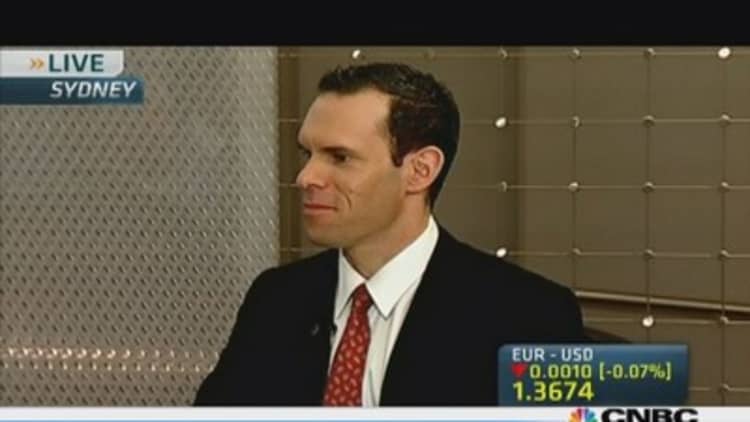Australian inflation rose more than expected in the September quarter due to a sharp spike in fuel prices, sending the local dollar to a 4-1/2 month high as markets pruned back the chances of further interest rates cut this year.
However, despite the quarterly rise, the annual rate of inflation remained in the bottom half of the Reserve Bank of Australia's (RBA) 2-3 percent target band, suggesting there is still room to cut interest rates if push comes to shove.
(Read more: Is Australia's rate-cutting cycle over?)
"The headline readings are certainly above expectations, the underlying readings are relatively more restrained," said Savanth Sebastian, an economist at CommSec.
"But in general it's clear that inflation is still in check, holding towards the mid-point of the Reserve Bank's target band."

Figures from the Bureau of Statistics on Wednesday showed headline inflation quickened to 1.2 percent in the third quarter from 0.4 percent in the second quarter, thanks to a sharp rise in automotive fuel.
The two measures of underlying inflation, the trimmed-mean and weighted median, came in at 0.7 percent and 0.6 percent respectively, taking their annual reading to 2.3 percent.
(Read more: Aussie gets boost after Fed shocker, but will it last?)
Pricing out cut
Investors took the headline number as an excuse to bid up an already rallying Australian dollar, pushing it to a fresh 4-1/2 month high of $0.9749, from around $0.9710 before the data.
Interbank futures turned negative as the market trimmed the chance of an interest rate cut in 2013 and moved to price in a slightly bigger risk of a rate hike over a 12 month period.
December interbank futures now imply only a 14 chance of a quarter point cut, compared with around 22 percent before the data.
(Read more: Australia's post-election cheer may prove short lived)
"It's certainly a disappointing inflation outcome and a further blow to those expecting another interest rate cut," said Shane Oliver, chief economist at AMP Capital Markets.
"The September quarter is traditionally a strong one, so its quite feasible that the next quarter will surprise on the downside."

